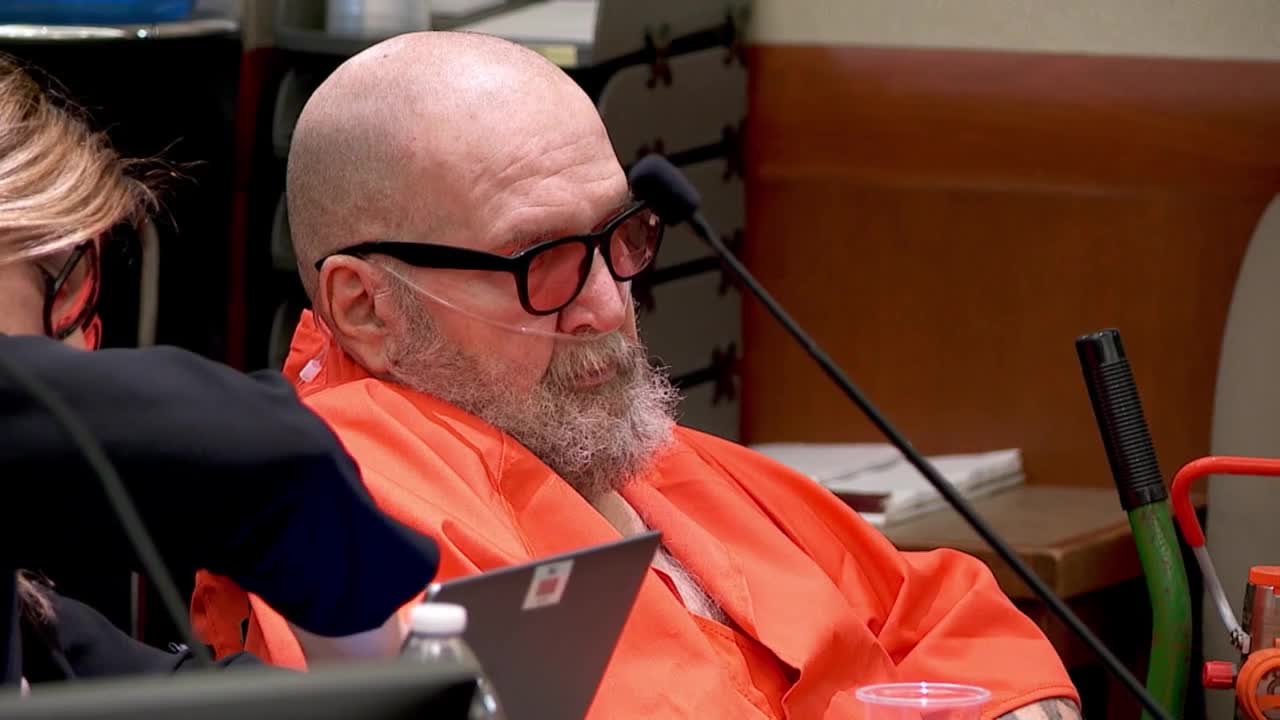SALT LAKE CITY — Condemned killer Ralph Leroy Menzies arguably has one last chance to avoid a firing squad execution by appealing to the Utah Supreme Court.
On Thursday, the state's top court heard arguments over whether Menzies' upcoming execution should have been halted pending appeal, and whether a lower court judge should have ordered a new competency evaluation once his attorneys disclosed his dementia had gotten worse.
That same judge previously found Menzies competent to be executed for the 1986 murder of Maurine Hunsaker, who was taken from her job at a Kearns gas station, tied to a tree and her throat was slit.
"Mr. Menzies has a progressive disease. He is always getting worse," his attorney, Lindsey Layer, argued to the justices.

Crime
Menzies commutation request rejected by Utah Board of Pardons and Parole
Layer argued that to execute Menzies now would violate the Eighth Amendment to the U.S. Constitution. Because of his deteriorating condition, she told the Court, he cannot rationally understand the meaning and purpose of his execution. But a lower court judge refused to order a new competency evaluation, she said.
In often very technical arguments that centered around case law surrounding competency the Utah Supreme Court justices pressed Menzies' attorneys about evidence necessary to bring such a claim.
"If this particular illness is progressive, it changes all the time, how do we not end up in this situation repeatedly?" asked Justice Paige Petersen.
"With this particular illness? That is true," Layer replied.
Justice Diana Hagen questioned where the line is for a defendant to understand the nature of their crime and the punishment being handed down and what qualifies as a substantial change. Layer told the Court that Menzies' circumstances have substantially changed.
Chief Justice Matthew Durrant raised the issue of some prison phone calls that Menzies had made that prosecutors submitted as evidence that he is competent.
"He does seem to understand who he’s speaking with, he’s giving appropriate responses," Chief Justice Durrant said, later adding: "How does that level of understanding, let’s say, figure into the legal standard for competency to be executed?"
But Layer argued it did not show the whole picture, where Menzies struggled to even make some phone calls to his lawyers and others.
"He’s clearly struggling, he’s not able to complete those calls," she told the Court.
Assistant Utah Attorney General Daniel Boyer argued that not enough has changed to justify a new competency evaluation.
"The defendant must specifically allege a substantial change in circumstances, the petition must be sufficient to raise a question about the inmate’s competency," he said.
In court were members of Maurine Hunsaker's family. Her son, Matt, told reporters outside the Utah Supreme Court chambers he believed that if Menzies' attorneys are successful in delaying the execution for new competency evaluations, then Menzies will not be executed at all. The family has waited 39 years to see it happen.
"If they are able to open this here in another month? It’s the cycle. It won’t change," Matt Hunsaker said. "I’m sticking to my firm belief that if we don’t execute him on Sept. 5th, there will not be an execution."
The Court took the case under advisement with no timeline for a ruling.




